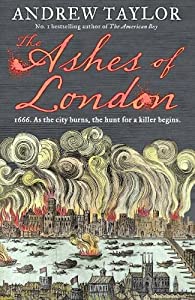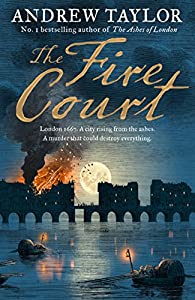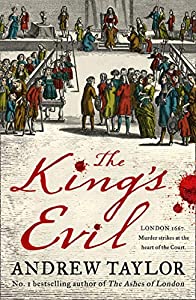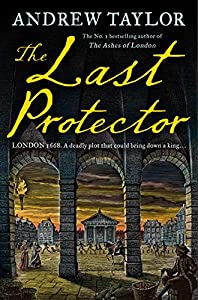
I’M A CRIME WRITER. So in one sense it’s no surprise that The Shadows of London, my latest novel, starts with a body.
Here’s the scene: workmen clearing a large building site stumble on the corpse of a naked man concealed in a pile of rubble. The building site lies off Snow Hill in London, between Newgate and Holborn. The man has been stabbed several times. His face has been beaten with a blunt instrument until all that’s left of it is an unrecognisable mass of blood and bone.
So far, so classic crime scenario. The local magistrate inspects the corpse. For an arcane legal reason, the coroner can’t sit on the body (love that phrase) for at least a week or two. The magistrate orders work to stop on the entire building site until the inquest. There’s no reason for such a sweeping prohibition except, perhaps, pure malice. Meanwhile, the builder is sinking deeper and deeper into debt, and winter is fast approaching, when all groundwork must stop until the spring. The entire tightly-budgeted project is now at risk.
So what does the builder do? Answering that question is the story of the novel. The murder could have happened in 2023, but in fact the book is set in 1671. The builder in question is Cat Hakesby, née Lovett, now carrying on her late husband’s business, which her widowed status allows her to do. The building site consists of ruins and extensive grounds belonging to an almshouse destroyed five years earlier in the Great Fire of London.
Like good taste and the little black dress, crime is timeless, both in its essentials and in its effects on the innocent people caught up in it. That’s one of the things I’ve discovered while writing this historical crime series that began with the Great Fire and The Ashes of London. Another is that history is full of echoes - not of the past but of the present.
How does that work? One of the germs of Shadows was the drip-feed of unsavoury information about men behaving badly that led, not before time, to the #MeToo movement. Harvey Weinstein and Jeffrey Epstein have much to answer for - including, in a sense, this novel. But the activities of male sexual predators are, shamefully, as old as the human race. If such acts, whether past or present, aren’t crimes, then I don’t know what are.
One of the themes of the entire Ashes of London series had already become, almost accidentally, the role of women in 17th-century England. I wanted to look more closely at how women dealt with the men who merely wanted their bodies. Or their money. Or both. What were the possibilities?
The latest in the series, The Shadows of London, concerns the pimping of a young Frenchwoman to the priapic Charles II, a man roughly twice her age who was all too willing to find a pretty young virgin in his bed. The pimps were the French ambassador, with the encouragement of Louis XIV, and Charles’s leading minister. These two men were keen to cement a newly signed Anglo-French alliance; they calculated that providing the king with a compliant French mistress skilled at pillow talk would help them discover what was in his mind; it would also give them a clandestine means of influencing him.
This King Charles was known as the ‘Merry Monarch’, partly because his appetite for women was a legend in his own time. The Frenchwoman - the penniless and defenceless Louise de Kéroualle, ironically employed as one of the Queen’s maids of honour - came under enormous pressure to succumb to his advances. To her credit she resisted both bribes and unspoken threats for nearly a year.
True, Louise was no angel - she gave ample evidence of that in her later life - but the men who pushed her into the king’s bed had left her little choice.
There are other women in The Shadows of London, and other crimes than what amounted to a form of socially sanctioned and political expedient rape. There’s mystery as well in this novel, and of course more murders. Charles II and Louise de Keroualle may be long dead but the dark allure of crime is universal to all cultures, all times.
THE SHADOWS OF LONDON
Harper Collins, Hdbk £20.00 March 02, 2023
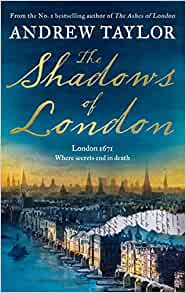
‘This is terrific stuff’ Daily Telegraph
‘A breathtakingly ambitious picture of an era’ Financial Times
‘A masterclass in how to weave a well-researched history into a complex plot’ The Times
www.andrew-taylor.co.uk
@andrewjrtaylor
THE JAMES MARWOOD AND CAT LOVETT SERIES:
